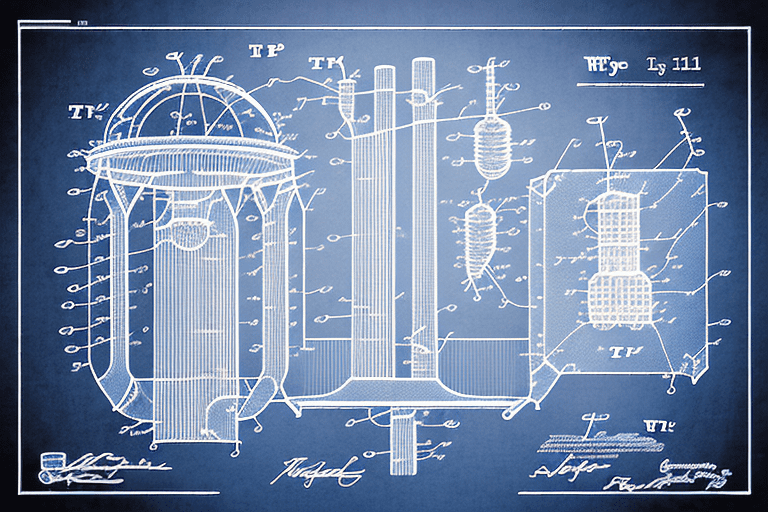What is the Patent Bar Exam?
What is the Patent Bar Exam?
The Patent Bar Exam is a rigorous test that evaluates individuals' knowledge and understanding of patent law. It is administered by the United States Patent and Trademark Office (USPTO) and passing this exam is a requirement for becoming a registered patent attorney or agent. The exam consists of multiple-choice questions that cover various aspects of patent law, including patent application procedures, patent prosecution, and patent infringement. It also tests applicants' understanding of the Manual of Patent Examining Procedure (MPEP), a comprehensive guide to patent examination. Studying for the Patent Bar Exam requires a thorough understanding of patent law and the ability to apply that knowledge to practical scenarios. By passing this exam, individuals demonstrate their expertise in patent law and their readiness to assist inventors in protecting their intellectual property.

Why is passing the Patent Bar Exam important?
Passing the Patent Bar Exam is a critical milestone for anyone aspiring to become a patent attorney or agent. This exam is administered by the United States Patent and Trademark Office (USPTO) and tests the knowledge and understanding of patent laws, rules, and regulations. Achieving a passing score on this exam is not only a requirement to practice before the USPTO but also a testament to one's expertise in the field of intellectual property. It demonstrates a deep understanding of the complex patent system and the ability to navigate the intricacies of patent prosecution. Moreover, passing the Patent Bar Exam opens up a world of opportunities, allowing individuals to represent clients in patent matters, provide legal advice on patentability, and engage in patent litigation.
Eligibility requirements for the Patent Bar Exam
To be eligible to take the Patent Bar Exam, there are a few requirements that must be met. First and foremost, you must have a technical degree in a qualifying field such as engineering, computer science, or chemistry. This ensures that you have the necessary foundation to understand and analyze patent applications. Additionally, you must have a good moral character and be a citizen of the United States. These requirements are in place to ensure that those who pass the exam are qualified to practice patent law and protect intellectual property. By meeting these eligibility requirements, you are one step closer to becoming a registered patent agent or attorney and embarking on a rewarding career in the field of intellectual property law.
How to prepare for the Patent Bar Exam
Preparing for the Patent Bar Exam requires a strategic and focused approach. It is essential to understand the structure and content of the exam, which consists of multiple-choice questions and requires a thorough knowledge of patent law and procedures. To effectively prepare, aspiring patent attorneys should utilize study materials specifically designed for the exam, such as practice tests and study guides. Additionally, taking advantage of online resources and participating in study groups can provide valuable insights and help reinforce key concepts. Developing a study schedule and dedicating sufficient time to review and practice is crucial for success. By following these steps and adopting a comprehensive study plan, aspiring patent attorneys can increase their chances of passing the Patent Bar Exam and embarking on a rewarding career in intellectual property law.
Study materials and resources for the Patent Bar Exam
When preparing for the Patent Bar Exam, having the right study materials and resources is key to success. While there are various options available, it's important to choose materials that are comprehensive and up-to-date with the latest changes in patent law. One valuable resource is the Manual of Patent Examining Procedure (MPEP), which is a detailed guide that covers the rules and procedures for patent examination. Additionally, online courses and practice exams can provide a structured learning experience and help you gauge your understanding of the material. By utilizing these study materials and resources, you can approach the Patent Bar Exam with confidence and increase your chances of passing on your first attempt.
Tips and strategies for studying effectively
When it comes to preparing for the Patent Bar Exam, studying effectively is key to success. Understanding the complex laws and regulations surrounding patents requires a strategic approach. Start by breaking down the material into manageable sections, focusing on one topic at a time. Utilize resources such as practice exams and study guides to reinforce your knowledge and identify areas that need improvement. Additionally, creating a study schedule and setting specific goals will help you stay organized and motivated throughout the process. Remember to take breaks and give yourself time to rest and recharge, as retaining information is just as important as studying it. By implementing these tips and strategies, you'll be well on your way to passing the Patent Bar Exam with flying colors.
Understanding the format and content of the Patent Bar Exam
Understanding the format and content of the Patent Bar Exam is essential for successfully passing this challenging test. The exam consists of multiple-choice questions that assess your knowledge of patent laws, regulations, and procedures. It covers a wide range of topics, including patentability, patent prosecution, and post-grant proceedings. Additionally, the exam includes questions on ethics and professional responsibility. Familiarizing yourself with the exam's format and content through thorough preparation and study will greatly increase your chances of achieving a passing score and becoming a registered patent attorney or agent.
Test-taking strategies for the Patent Bar Exam
When it comes to the Patent Bar Exam, having effective test-taking strategies can make all the difference in your success. One key strategy is to familiarize yourself with the format and structure of the exam. Understanding the types of questions you will encounter and how they are weighted can help you allocate your time and prioritize your efforts. Additionally, practicing with sample questions and past exams can help you become comfortable with the content and improve your speed and accuracy. Finally, developing a systematic approach to tackling each question, such as reading the question carefully and eliminating incorrect answer choices, can help you navigate through the exam efficiently. By implementing these test-taking strategies, you can significantly increase your chances of passing the Patent Bar Exam and advancing your career as a patent attorney.
What to expect on exam day
On exam day, it is important to be prepared and know what to expect when taking the Patent Bar Exam. The exam consists of multiple-choice questions that assess your knowledge of patent laws and regulations. You will be tested on various topics, including patent eligibility, patent prosecution, and patent infringement. It is crucial to have a solid understanding of the Manual of Patent Examining Procedure (MPEP) and be familiar with the latest updates and revisions. Additionally, time management is key, as you will have a limited amount of time to complete the exam. By studying diligently, staying up-to-date with the latest developments in patent law, and practicing sample questions, you can increase your chances of passing the exam and becoming a registered patent attorney or agent.
Next steps after passing the Patent Bar Exam
After successfully passing the Patent Bar Exam, the next steps are critical in launching your career as a patent attorney. First and foremost, you should apply for registration with the United States Patent and Trademark Office (USPTO) to become a registered patent agent or attorney. This will allow you to practice before the USPTO and represent clients in patent matters. Additionally, networking and building connections within the intellectual property community is essential for finding job opportunities and gaining valuable experience. It is also important to stay updated with the latest developments in patent law through continuing education and attending conferences and seminars. By taking these next steps, you will be well on your way to a successful career as a patent attorney.
Post Your Ad Here





Comments